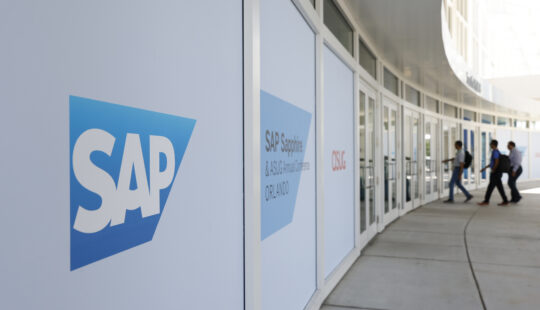Sending an email at midnight used to be a badge of honor. As dawn to midnight became the new 9:00 a.m. to 5:00 p.m., it signaled your status as a dedicated workaholic, never mind the effect on your health, relationships, and ability to do the job.
That was bad enough, but then along came COVID-19.
Heed the Warning
 Thanks to social distancing, lockdowns, and the new virtual world of work, it’s becoming even more difficult to cope. In the past, at least there was face-to-face interaction with colleagues and customers. There were opportunities to wind down and socialize. Home life and work life were spatially delineated – the commute between home and office provided an opportunity to transition mentally between two worlds.
Thanks to social distancing, lockdowns, and the new virtual world of work, it’s becoming even more difficult to cope. In the past, at least there was face-to-face interaction with colleagues and customers. There were opportunities to wind down and socialize. Home life and work life were spatially delineated – the commute between home and office provided an opportunity to transition mentally between two worlds.
Now it all blends together. People are working from their kitchen tables while they try to home-school the kids. Around the world, people are struggling to juggle work and family responsibilities with no respite.
The statistics are troubling. According to the World Economic Forum, one in three adults is depressed or anxious due to COVID-19. Headlines like “Quarantine Magnifies Depression and Alcoholism” and “Drug Use Increase During COVID-19” warn of the dire straits we’re in.
The U.S. Center for Disease Control and Prevention (CDC) estimates that depression interferes with a person’s ability to complete physical job tasks about 20% of the time and reduces cognitive performance about 35% of the time.
SAP North America President DJ Paoni was alarmed by these statistics and even more alarmed by the results of recent Qualtrics employee pulse surveys on remote work at SAP.

Take the Day Off
“We learned that a third of our employees have stress levels that are higher than their satisfaction level. Sixty-one percent said that they’re working slightly above capacity,” he explained in an interview.
Paoni decided to act. Seeing the need for employees to unplug, he worked with local and global teams to implement SAP’s Mental Health Day, a company-sponsored global holiday for all employees, scheduled for April 27. Work will grind to a halt on that day, giving everyone time off to do something for themselves and their families.
“It’s not just another day off,” says Paoni. “It’s a clear message from the company that it’s okay to relax. Healthier employees mean happier customers, so there is a business benefit in the long run.”
Don’t Feel Guilty Taking a Mental Health Day
Dr. Natalie Lotzmann, chief medical officer at SAP, explains the importance of the initiative. How well we deliver on our business goals sustainably depends on our well-being, she says. The pandemic has compounded existing challenges and created a new dimension of mental distress for many people. With Mental Health Day, SAP is signaling a strong commitment to its employees – and to society at large – that mental health is important, and there is no place for stigma in the workplace.
Lotzmann confirms the increase in mental health issues during COVID-19. Reports from SAP’s global Employee Assistance Program (EAP), a confidential counselling service for employees, show a 28% increase in calls in 2020, continuing an upward trend apparent since 2017.
Mental health problems are quite common. According to the Johns Hopkins Medical Institute, some of the top causes of disability worldwide include disorders such as depression, schizophrenia, and obsessive-compulsive disorder. About one out of four Americans ages 18 and older suffers from a diagnosable mental disorder every year.
So why is there still a stigma?
“Stigma usually stems from a lack of understanding or fear of the unknown,” says Lotzmann. “The fact that people don’t talk about the problem makes it harder to understand.”
Lotzmann says the best way to remove stigma is to encourage people to share their experiences, providing employees with the strength and courage to reach out for help. Sharing experiences will also help showcase the support and positive culture that exists within the company.
What You Can Do
Over the years, Lotzmann has witnessed an evolution in the way enterprises are dealing with this topic. She has observed a positive shift but emphasizes that it’s not a tick-the-box exercise or campaign that employers do with bells and whistles. Rather, such a change must be nurtured and adopted organically through a culture of leadership, open dialogue, and awareness of available resources.
Attention to the mental health of employees has dual benefits; it creates a healthy culture and has clear business benefits. At SAP, there are programs in place to help maintain the mental health of employees by prevention, early detection, case management support, and reintegration.
As the chief medical officer of SAP, Lotzmann reminds us that mental health can impact anyone at any time. Her advice? If it impacts you or a loved one, be aware that you are not alone. Take good care of yourself, pay attention to warning signs, and reach out for help early.
This article was written by Judith Magyar and first appeared on the SAP Global News Center. Follow Judith on Twitter: @magyarj



